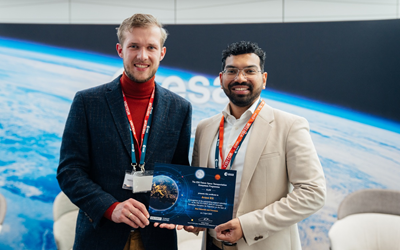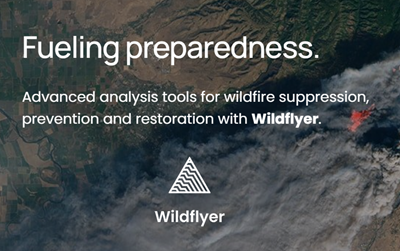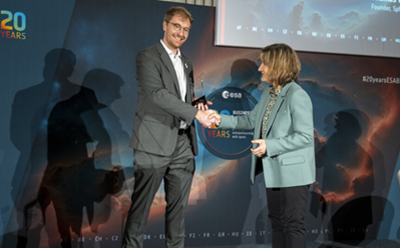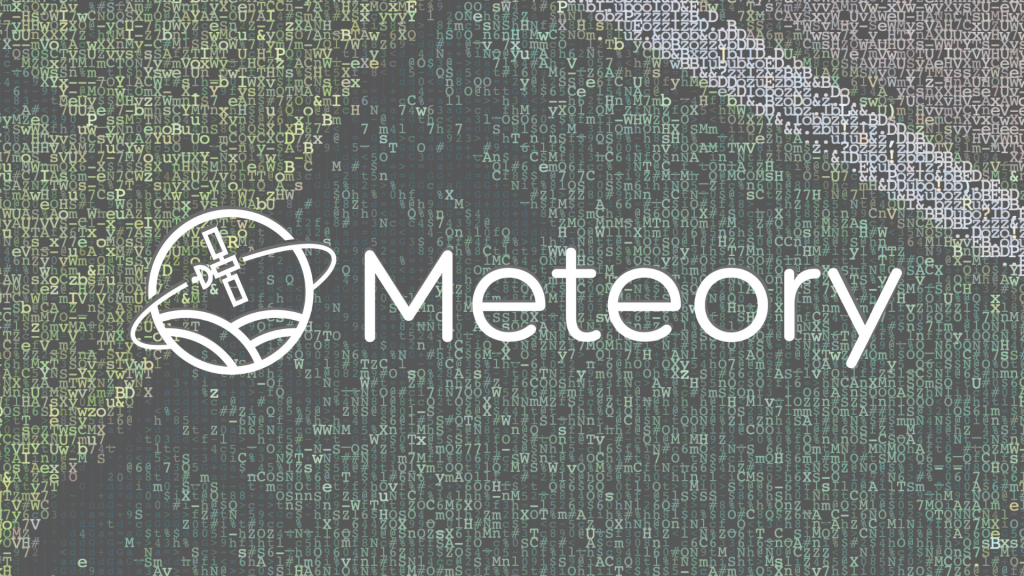
Combine the intrinsic motivation to solve global warming with a passion for data and satellites and you’ll get the ingredients for a startup that fits the ESA BIC Noordwijk programme perfectly. Meet Meteory, the latest addition to our space business network.
We interviewed founders Alexandre Larroumets and Pierre Blanchet about their entrepreneurial journey.
What does Meteory do and what problem does it solve?
Alexandre: Meteory aims to deeply understand carbon emissions and absorptions by creating an innovative monitoring solution. Through this, we want to help local decision makers and companies to reach carbon neutrality. In short, we provide them key insights with a precision they don’t have right now. Space data is reliable, they can assess policies and project decisions upon that data.
How does it work?
Pierre: By analyzing satellite data, we can figure out how much carbon is emitted and absorbed in an area, we can also measure the concentration in the atmosphere. Other businesses are trying to do this as well, but their most common approach is ground measurement or very niche source monitoring by satellite. Our approach is data. We aggregate data from multiple satellites and different agencies – from which we create our own carbon database. Why? Because with data from one satellite you can know how much a country can emit, but with data from multiple satellites you can eventually analyze the emissions of much smaller areas.
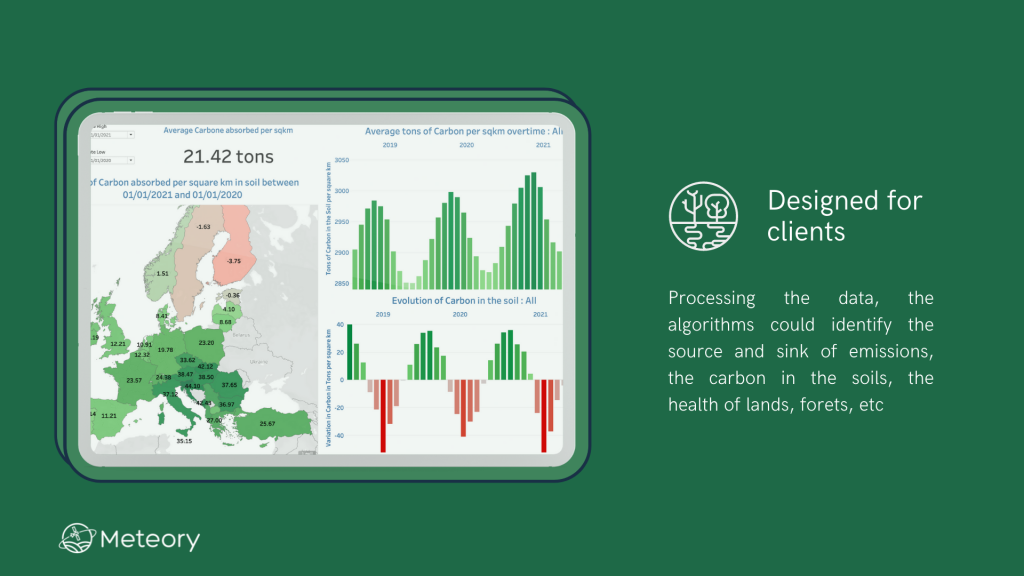
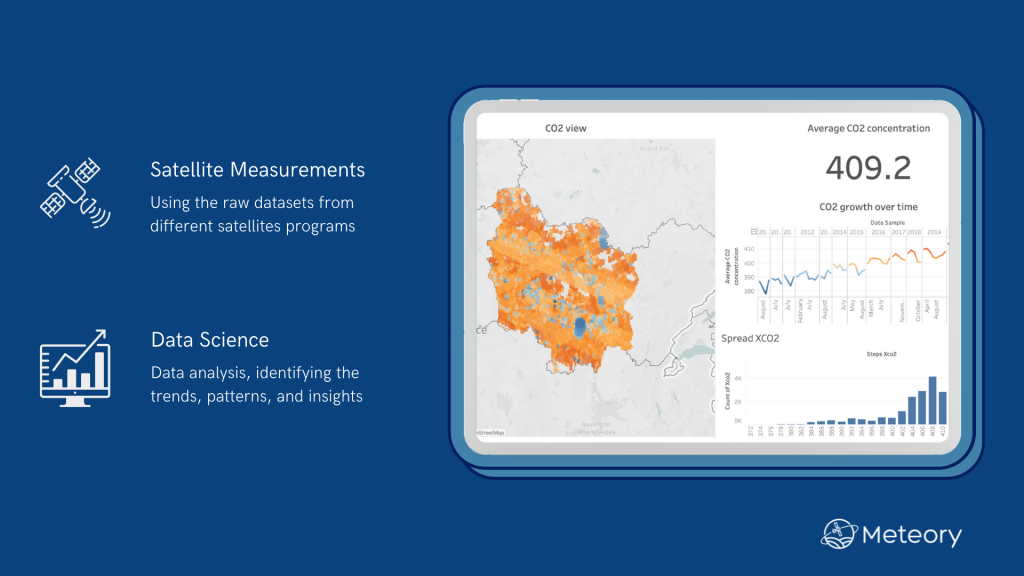
What can you tell us about your background? How did Meteory came to be?
Alexandre: Pierre and I attended the same engineering school in France and became close friends. I specialised in aerospace and robotics, then did different internships in this sector.
Pierre: And I specialised in data science. After that I worked at the ECB and there I really fell in love with data. With data, you can discover things that weren’t there before. We live in an abundance of data – we literally work with millions of rows in our data sets – so it would be a shame to not use it.
Alexandre: Combine our strengths: big data and a passion for space, and you’ll get Meteory.
Pierre: And most important, we both think we, as humans, have an ecological commitment. So by starting this business, we want to bring value to the world.
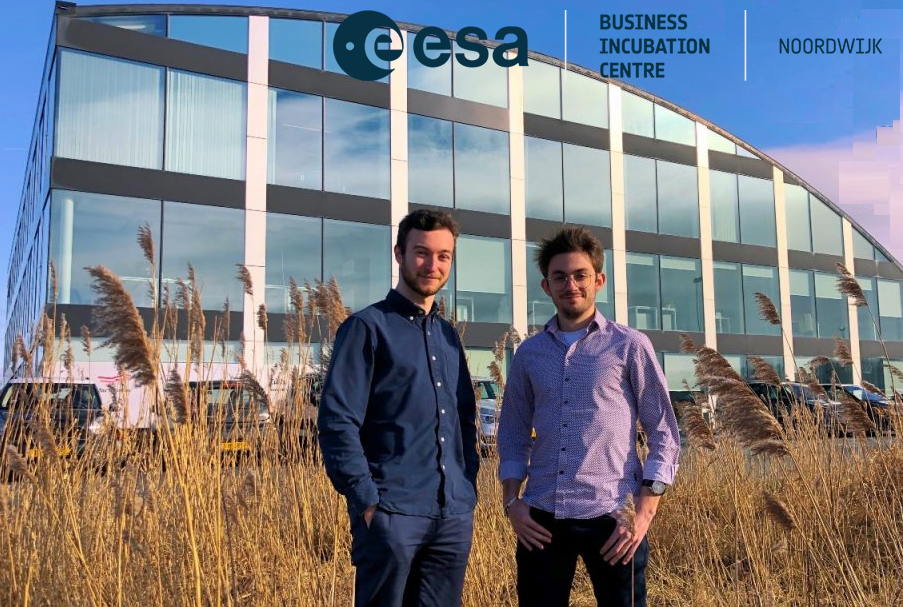
There’s a worldwide attention for carbon emissions right now. Do you see any challenges?
Alexandre: We need to make sure the analysis of the data we are showing is truly relevant to different markets. We are mainly focused on Business to Government (B2G) and Business to Business (B2B). What we’ve learned so far is that there is a lack of carbon emission monitoring solutions. By providing a relevant tool that closes the gap between decision making and effective measuring, Meteory could bring some value. Hence the importance of quality assessment of the data all along.
Pierre: Carbon emissions are just one part of global warming. So in the end, I think we are in and moving towards the environment monitoring business, not only carbon business. So if you want to fight any type of pollution, we want to be the place to go.
Why did you choose to be in the ESA BIC programme?
Alexandre: We wanted to start our entrepreneurial journey in The Netherlands, and were looking to programmes that could help us. ESA BIC was perfect for us, as we have a strong space link. The expertise in the network of SBIC in Noordwijk was very appealing to us, so we needed to be here.
What advice would you like to give to other entrepreneurs?
Pierre: Just do what you like to do. Of course there will be risks and responsibilities, but that’s just part of life. The best time to start with your idea is right now, it’s never in the future. Don’t find excuses to start, but opportunities. For instance, we are French, but live in the Netherlands. So, people back home ask us: why start here? Well, we are here right now, and the time is now, so why not?
What struck you about the space industry?
Alexandre: The amount of companies in the space industry that are created all over the world right now is amazing. There are many services and there are more opportunities than ever to build a business that’s space related. Space is the new sandbox that drives innovation.

What’s your secret ingredient?
Pierre: We know how to work closely together, we have been flatmates for 2 years now. Sometimes it happens that you get so caught up in work that you don’t see the big picture anymore. So then we played some video games to relax.
Alexandre: It helps with brainstorming as well. When the two of us were abroad, we didn’t just call, but played a game online and brainstormed while doing so. That makes us flexible and gives us a lot of creative ideas actually. In a nutshell, good communication is the secret ingredient.
